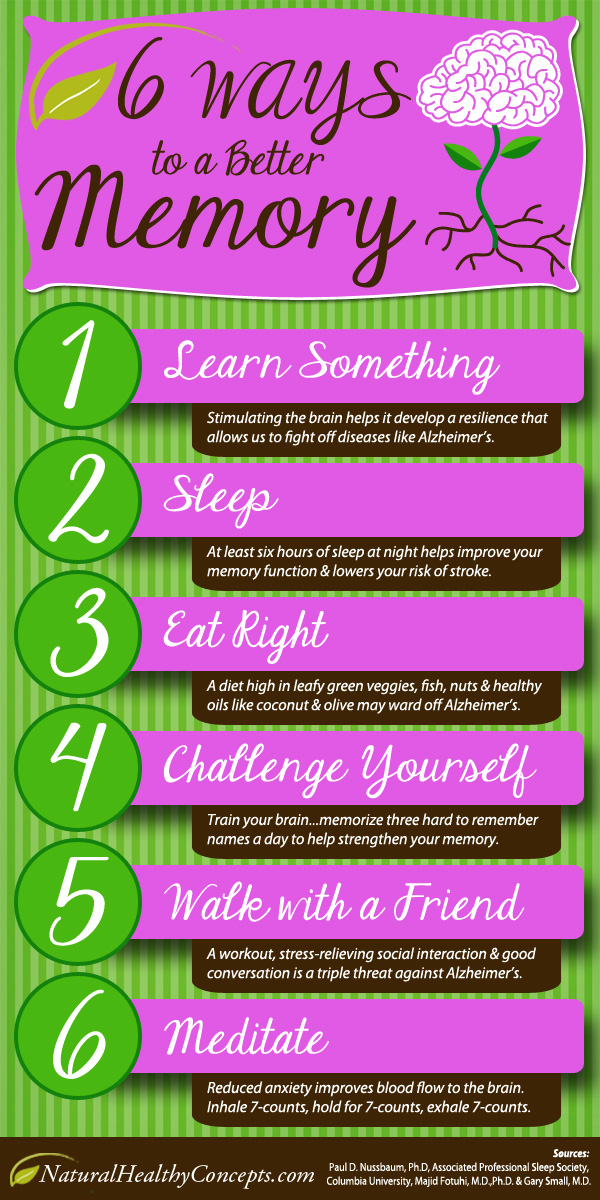
Memory Improvement Tips: How to Recall Better
If you wish to enhance your mental faculties, incorporating memory improvement tips into your daily routine can be a game changer. Individuals often find themselves facing challenges like forgetting names or struggling to retain information for exams, but with the right strategies for better memory, these obstacles can be overcome. Research suggests that employing effective memory techniques not only boosts memory recall methods but can also significantly increase memory retention. Inspired by the insights of experts like Andrew Budson and Elizabeth Kensinger, we will explore a variety of proven approaches designed to enhance your ability to remember. Don’t let forgetfulness hold you back; dive into these memory improvement tips and unlock the full potential of your mind!
Are you looking for ways to boost your cognitive performance and retain critical information longer? Memory enhancement strategies can play a vital role in sharpening your mind. From ancient methods like the memory palace to modern neuroscience-backed techniques, there’s a wealth of resources available to help you master the art of remembering. Whether you’re tackling the challenges of everyday life or striving to excel in academic settings, understanding how to leverage effective memory improvement techniques will empower you to succeed. Join us as we uncover various innovative practices that can revolutionize the way you recall and retain information.
Understanding Memory: How It Works
Memory is an intricate process that involves encoding, storing, and retrieving information. At its core, memory can be categorized into various types, including short-term and long-term memory. Short-term memory allows us to hold limited information for brief periods, while long-term memory encompasses all the data we accumulate over time. Understanding these fundamentals is crucial for anyone looking to improve their retention and recall capabilities.
Recent research indicates that different brain regions are responsible for different types of memory tasks. For example, the hippocampus plays a significant role in forming new memories, whereas areas in the frontal lobe help us retrieve information. This understanding opens up new avenues for developing strategies to bolster memory performance, which can be particularly beneficial when studying or learning new skills.
Effective Memory Techniques You Can Use
Implementing effective memory techniques can make a significant difference in how well we retain information. One widely recognized technique is the ‘method of loci,’ or memory palace. This ancient strategy involves visualizing a familiar space—like your home—and associating various pieces of information with specific locations within that space. By mentally walking through these locations, you can enhance recall and improve your ability to retrieve information when needed.
Another promising technique for enhancing memory is chunking, which breaks down complex information into smaller, digestible units. For instance, when trying to remember a long string of numbers, grouping them into sets can make them easier to recall. Both these methods leverage our brain’s natural inclination towards visualization and organization, turning what might seem like overwhelming data into manageable chunks.
Memory Retention Strategies for Everyday Life
Increasing memory retention isn’t just about studying; it encompasses various lifestyle choices and habits as well. Regular physical exercise, for instance, has been shown to release growth factors in the brain, which improve cognitive functions, including memory. Maintaining a healthy diet rich in antioxidants, healthy fats, and vitamins can also provide the necessary nutrients to support brain health.
Additionally, staying socially active and engaging in mentally stimulating activities can create new neural connections. Whether it’s learning a new language, playing an instrument, or simply engaging in lively conversations, these activities challenge your brain and enhance its plasticity, ultimately leading to improved memory retention over time.
The Importance of Sleep for Memory Improvement
Sleep is paramount when it comes to memory improvement. During sleep, our brains process and consolidate memories, making connections that improve recall. Studies show that a lack of sleep can lead to significant impairments in memory retention and cognitive performance. Therefore, ensuring a regular sleep schedule and adequate rest can amplify your learning capabilities.
Moreover, incorporating short naps into your day can also provide a memory boost. Research suggests that power naps of 20-30 minutes can enhance alertness and cognitive performance, aiding in better memory recall. Prioritizing sleep not only improves your overall brain health but also equips you with the ability to learn and remember more effectively.
Emotional Connections and Memory Recall Methods
Emotions play a vital role in memory retention. When we create emotional connections to the information we’re trying to learn, we are more likely to remember it. This phenomenon can be leveraged when studying or memorizing—associating facts or figures with particular emotions or stories can significantly enhance recall. Techniques like storytelling can invoke strong emotional responses that make the information stick.
Furthermore, using mnemonic devices that evoke specific images or feelings can bolster memory. For example, creating a vivid image linked to a fact can trigger a more robust memory later on. Understanding the interplay between emotions and memory allows for the effective use of emotional engagement to foster deeper and more reliable recall.
Avoiding Common Memory Impairment Factors
Several common factors can impair memory and impede learning capabilities. Stress, for instance, can take a toll on your ability to retain and recall information effectively. When you’re stressed, your body releases hormones that can interfere with memory formation and retrieval. Therefore, incorporating stress management techniques, such as mindfulness and relaxation exercises, can enhance cognitive functions and support better memory performance.
Additionally, certain substances, including cannabis and even excessive caffeine, may negatively impact memory function. Being mindful of what you consume and how it affects your brain can be instrumental in improving your memory. Focusing on healthy lifestyle choices will provide the mental clarity needed to approach learning and memory with a sharper edge.
Technology and Memory Enhancement
In the digital era, various technological tools and applications have emerged to assist with memory enhancement. From note-taking apps that allow for better organization to flashcard systems that utilize spaced repetition, technology can be a powerful ally in improving memory retention. These tools not only help in organizing information but also reinforce learning through regular review.
Moreover, virtual reality (VR) platforms are being explored as innovative methods for training memory. By immersing users in realistic environments, these technologies can enhance memory recall and increase engagement in the learning process. As technology evolves, it continues to offer new strategies for optimizing memory performance, making learning more accessible and effective.
Professional Help and Memory Improvement Programs
Sometimes, the journey to better memory may require professional intervention. Cognitive training programs, often led by psychologists, can help individuals develop personalized memory improvement strategies. These programs assess your current memory capabilities and employ various exercises tailored to strengthen those areas that need enhancement.
Additionally, seeking assistance from memory coaches can provide targeted strategies for better memory recall. These experts can offer support with techniques like visualization, association, and other cognitive tools tailored to your specific needs. Investing in professional help can lead to substantial improvements in your memory capabilities and overall cognitive health.
The Role of Nutrition in Memory Health
Nutrition plays a crucial role in supporting brain function and enhancing memory. A diet rich in omega-3 fatty acids, antioxidants, and vitamins can help sustain and even improve cognitive performance. Foods like fatty fish, nuts, and berries are linked to better brain health and memory retention, providing essential nutrients that support neural connections.
Moreover, staying hydrated is equally important. Dehydration can lead to cognitive decline, impairing focus and memory. Consuming adequate amounts of water throughout the day ensures that your brain operates optimally, aiding in better retention and recall of information. Therefore, focusing on your diet can significantly enhance your memory capabilities.
Daily Habits for Lasting Memory Improvement
Incorporating daily habits that support memory can yield substantial results over time. Simple practices such as maintaining a regular schedule for meals, study, and sleep can create a structured environment that is conducive to learning. Creating routines helps the brain form connections and reinforces what is learned, leading to better retention.
Additionally, dedicating just a few minutes each day to review and practice what you’ve learned can solidify memories and enhance recall. Techniques such as journaling or discussing learned concepts with others can reinforce information and promote retention. Building these daily habits fosters a culture of continuous learning and memory improvement, ultimately leading to long-lasting cognitive benefits.
Frequently Asked Questions
What are some effective memory improvement tips to enhance recall?
To enhance memory recall, you can implement several effective memory improvement tips, including regular practice through spaced repetition, engaging multiple senses during learning, and employing visualization techniques. Strategies for better memory also include associating new information with what you already know and ensuring adequate sleep to aid memory consolidation.
How can I improve my memory retention while studying?
To improve memory retention while studying, utilize memory techniques like creating mnemonics, summarizing information in your own words, and breaking study material into manageable chunks. Incorporating active recall methods by testing yourself can significantly boost memory retention and understanding.
What memory techniques can help with studying for exams?
Several memory techniques can help you study effectively for exams. These include the ‘method of loci’, which involves visualizing information in a familiar place, and the use of flashcards for active recall. Other strategies include teaching the material to someone else and making use of mind maps to visualize connections between concepts, all tailored to improve memory retention.
Are there any daily habits to increase memory retention?
Yes, there are several daily habits you can adopt to increase memory retention. Regular physical exercise has been shown to enhance cognitive function, while a healthy diet rich in omega-3 fatty acids and antioxidants supports brain health. Additionally, practicing mindfulness meditation can improve focus and memory, allowing for better information retention.
What are some good strategies for better memory that I can start using today?
You can start using strategies for better memory today by implementing techniques such as the ‘pomodoro technique’ for focused study sessions, regular brainstorming sessions to stimulate creative thinking, and engaging in social activities that involve discussions to strengthen memory recall. Also, prioritize sleep and manage stress to maintain optimal cognitive function.
How can I use memory recall methods to remember names better at social gatherings?
To remember names better at social gatherings, employ memory recall methods such as repeating the person’s name when introduced, associating their name with a visual cue or a rhyme, and mentally noting specific details about them. These techniques can significantly enhance your ability to recall names in social settings.
What role does sleep play in memory improvement?
Sleep plays a crucial role in memory improvement as it is during sleep that the brain consolidates memories from short-term to long-term storage. Ensuring sufficient quality sleep helps in enhancing memory retention and cognitive function, making it a vital component of effective memory improvement strategies.
Can physical exercise really improve memory?
Absolutely! Physical exercise, especially aerobic activities, has been shown to improve memory by enhancing blood flow to the brain and promoting the release of growth factors that support neurogenesis. Regular exercise not only boosts memory but also plays a significant role in overall cognitive health.
What is the ‘method of loci’ and how does it improve memory?
The ‘method of loci’, also known as the ‘memory palace’ technique, is a mnemonic device where you visualize a familiar location and associate information you want to remember with specific landmarks within that location. This powerful memory technique leverages spatial memory to enhance recall, making it a potent strategy for improving memory.
Are there any foods that can help improve memory?
Yes, certain foods are known to improve memory. Foods rich in omega-3 fatty acids (like fatty fish), antioxidants (like berries), and vitamins (like leafy greens) contribute to better cognitive function and memory enhancement. Including a balanced diet with these memory-boosting foods can support healthy brain function.
| Topic | Key Point |
|---|---|
| Mastering Skills | Practicing one hour daily is more effective than seven hours once weekly. |
| Effects of Exercise | Six weeks of exercise can release growth factors, improve memory, and enlarge the hippocampus. |
| Memory Retrieval | Retrieving a memory can subtly or radically change it. |
| Impacts of Multitasking | Multitasking degrades memory performance, especially when combining verbal and visual tasks. |
| Sleeping for Memory | Sleep helps clear brain capacity after extended studying. |
| Memory Impairing Substances | Cannabis and certain other substances can impair memory. |
| Method of Loci | Involves associating difficult-to-remember information with landmarks or visualizing familiar buildings. |
| Stress and Recall | Stress can heighten recall of critical information. |
Summary
Memory improvement tips can significantly enhance your ability to recall information when you need it the most. By understanding the underlying mechanics of memory, as emphasized by researchers like Budson and Kensinger, one can adopt techniques such as practicing regularly, maintaining a healthy lifestyle through exercise, ensuring proper rest, and using proven strategies like the method of loci. Implementing these memory improvement tips not only makes retaining information easier but also aids in performing better in high-pressure situations.



